Podcast: Play in new window | Download (Duration: 22:54 — 21.0MB) | Embed
Subscribe: Apple Podcasts | Google Podcasts | Spotify | Android | Stitcher | Blubrry | Email | TuneIn | RSS | More
This episode of the Crime Cafe podcast features my interview with crime writer Kimberly McCreight.
We discuss her latest novel, Friends Like These, as well her other books, some of which are being adapted for the screen. That’s exciting!
Before I bring on my guest, I’ll just remind you that the Crime Cafe has two eBooks for sale: the nine book box set and the short story anthology. You can find the buy inks for both on my website, debbimack.com under the Crime Cafe link. You can also get a free copy of either book if you become a Patreon supporter. You’ll get that and much more if you support the podcast on Patreon, along with our eternal gratitude for doing so.
Check us out on Patreon: https://www.patreon.com/crimecafe
Debbi (00:54): But first, let me put in a good word for Blubrry podcasting.
I’m a Blubrry affiliate, but that’s not the only reason I’m telling you this. I’ve been using Blubrry Podcasting as my hosting service for my podcast for years and it’s one of the best decisions I ever made. They give great customer service, you’re in complete control of your own podcast, you can run it from your own website, and it just takes a lot of the work out of podcasting for me. I find for that reason that it’s a company that I can get behind 100% and say, “You should try this.” Try Blubrry. It doesn’t require a long-term contract, and it’s just a great company, period. It also has free technical support by email, video, and phone, so you can get a human being there. Isn’t that nice?
If you want to podcast, try out Blubrry. No long-term contract, excellent distribution, and great technical support, too, by email, video, and on the phone. I’ve included an affiliate link on this blog.
Download a copy of the PDF transcript of this episode here.
Debbi (00:54): Hi everyone. My guest today is the New York times bestselling author of Reconstructing Amelia, which was nominated for the Edgar, Anthony, and Alex Awards. Her second novel, Where They Found Her was a USA Today, bestseller and Kirkus Best Mystery of the Year. Her third, A Good Marriage was named Best Book of the Summer by the New York Times, People and Publishers Weekly. It was also an Amazon Best Mystery of the Month and will be coming to Amazon on your TV or coming to your TV by, by way of Amazon and Nicole Kidman’s Blossom Films. She’s also written a YA trilogy called The Outliers. Also optioned for film by Lionsgate and Reese Witherspoon’s Pacific Standard. Her latest novel is Friends Like These, and I’ve read a few chapters. I’m just a few chapters into it and I am so hooked. It is awesome. In any case, welcome, and thank you so much for being here, Kimberly McCreight.
Kimberly (02:02): Thanks so much for having me. And I’m glad to hear your hooked. That’s always good to hear.
Debbi (02:09): Oh, totally. I am loving what I’m reading. It’s awesome. Am I saying your name right? McCreight?
Kimberly (02:14): Yes, that’s exactly right.
Debbi (02:16): I’m so glad. <Laugh> I just wanna thank you so much for being here. First of all. And one of the things I love about Friends Like These is the way you’ve told the story through characters who are alike, but are very, very distinctive. Do you usually work from multiple perspectives? Do you usually write from multiple perspectives?
Kimberly (02:39): Yeah, all of my books are from multiple points of view, although I guess the, except for the first two of my YA trilogies, those were from a single point of view, but that was really a departure for me. So all of my other books are multiple points of view and usually multiple timeframes. Friends Like These was the most points of view I have ever done. I think there are six or seven. And also most of my books include like interstitial elements, journal entries or social media to kind of … it’s this orchestral way of telling a story. So, yeah, that was it. To be honest, I think made it a little hard for me to sell my first book because that’s the way I write, which is pretty complex. But yes, it’s really just kind of a natural way for me to tell a story.
Debbi (03:37): That’s great. That’s awesome. Do you think it makes it more adaptable for something like television or film?
Kimberly (03:45): You know, I don’t know. That’s a interesting question. I am adapting Friends Like These myself for Amblin Television is producing it. And so it’s a first time I’ve actually been confronted <laugh> with the real question of what it means to adapt my own books with all these different things. And I will say that I don’t think it makes it easier. I immediately you know, was looking to streamline my own structure. As you know, you can have some shifting of timelines of course, even in television, but and also just multiple points of view, et cetera. It’s complicated, more complicated. I think adapting.
Debbi (04:28): One of the things I think is important is the focus on character. Do you feel that you have a chance to dig more into each character by doing this?
Kimberly (04:38): Well, I definitely feel like I usually, they’re not, it’s not always first person. I’m usually there’s one character. That’s first person often, it’s the character who is not alive anymore. You’re usually following one storyline. You’re kind of figuring out the whodunnit after the thing’s already happened. And then in the other storyline you’re seeing the action unfold and they kind of meet at the end. So, and even in Friends Like These, that’s true. It’s just that one point of view is actually shared by this group of each of the friends, so that there’s multiple points of view moving that forward. So I really lead with character, I would say I have a vague sense of plot and theme and all that stuff. I know what, the kind of the kind of story I wanna tell and I have to sense of the spine, but I really try to lean into character.
It ends up being a, a bit of a conversation as I’m writing. I mean, I have to kind of approach one, you know, deal with the plot, get the plot out there. Sometimes I figure out my characters first, figure out those plot things then kind of get the plot laid down, like the tracks of it. My agent has said that it’s like a layering process. And I kind of go back and back and back and build, build the book up from there. So, but I really don’t let, because I don’t outline in advance there’s no, the story’s never driving the twists. The characters are. So I think that gives me a great deal of freedom to have, you know, hopefully stories where the characters are doing the things that feel consistent, surprising, but consistent with who they are. They’re driving the action.
Debbi (06:30): That’s awesome. It’s like you let the characters tell the story and then you go back and reverse engineer a little bit so that the plot makes sense.
Kimberly (06:39): Right. Exactly. And so there, there are a lot of times where I’m about to do something and it can actually undo a lot of the book. As I get to know a character I’m like this entire thing, like now, now I know who they are. You know, now that I’ve written a draft, I know who this person is and this entire thing and who they are, I am very attached to and I find compelling and they wouldn’t do these things. And so I have to, so again, the one piece, the one advantage of not outlining is I know that my process is gonna include so much rewriting. So I’m not like, “Oh, no, I just spent all this time doing this thing and oh, no, I have to upend it.” So, I’m not attached to anything because I don’t have anything <laugh>. So I’m like, you know, we can just rip it apart and redo it because it, it doesn’t really matter. So it, it is a, it’s a messy way of, of writing a book. But it does give you a certain amount of freedom.
Debbi (07:42): I think ultimately it does free you to write what really, really will work <laugh>.
Kimberly (07:48): Yeah, it does. It does. And, and I think, you know, I generally have like the main ending worked out, but that’s not usually where you get tripped up, you know, like it’s usually in that, in the how you get there part, but that can get sticky.
Debbi (08:04): Absolutely. How would you describe your writing style in general? Mystery, suspense, thriller, all of them. <Laugh>
Kimberly (08:12): You know, it’s funny, I’ve gotten this question a few times recently, and I did, I was on Sarah’s Bookshelves where she did a podcast devoted to the genre a year ago and she asked me that question like, or what did I see as the difference between the the various subgenres? And I will tell you that I asked, I had to ask my agent and my editor <laugh> cause I had no idea. I don’t even know what, I don’t know what the difference is supposed to be. I don’t know what my books really are. So I have no idea. And then my editor had had some good answers. Jennifer Barth, she, you know, like a mystery was one thing where it’s all, she had clear answers, but she agreed with me that there’s, the definitions are so porous. Yes. so I have no idea what … to me there’s so much blurring of lines between every genre. I mean, we’re talking about subgenres within mystery. I think even mystery to, you know, commercial fiction to literary fiction, like those and YA. Those, those are all crossing. So I don’t know what mine are. I’d be curious what you think you might have an opinion about what they are. I’m always curious to hear. Cause I have, I really don’t know
Debbi (09:33): If I can think of anything. I’ll get back to you. <Laugh> but I’m still working through your book and I got so many books to read, you wouldn’t believe, but every time I wanna pick up yours first. I’m just like, oh my gosh. Okay. Not, this is not to cast any aspersions on any of the other books I’m reading, because they’re all really good. What is your latest book about, and what inspired you to write it?
Kimberly (09:58): Friends Like These, you mean you, you don’t mean the one I’m working on now, Friends Like These.
Debbi (10:03): Yes. There’s one you working on now and Friends Like These <laugh>.
Kimberly (10:07): Yeah. So, so Friends Like These is about a group of college friends who reunite 10 years after graduation to stage an intervention from one of their, from one of their group.They had this kind of lavish house in upstate New York owned by one of the friends. And when the book opens one of the friends is dead and one is missing. And so something has obviously gone terribly wrong. And the group shares this kind of troubled history, one in their group committed suicide in college. And so they have these, they’re kind of stuck emotionally because of that, but they also share a lot of secrets. But there’s also a lot of conflict in town. This is kind of a place where a lot of wealthy New York City folks go, own weekend houses.
And it’s a town that has a bit of an opioid problem, but also a lot of socioeconomic pressures. And so there’s this push-pull between the weekenders and the locals, you know, they like the money brought in by the weekend visitors, but there’s tension there. So the question is what happened to the friends and does it have to do with, you know, that tension with the locals or the friends’ past or something else? And so, and there’s also a there’s a detective who shows up at the beginning who has her own, a local detective, who has her own troubled past and an attachment to a kind of age-old unsolved murder in town. And so, you know, these pieces all end up fitting together. But the book is also really first and foremost about friendship and a portrait of kind of the wonderful sides of those kind of really close friendships.
But there’s, you know, the dark edge of that kind of loyalty. We’re just kind of, we’ll be there for somebody no matter what. The group of friends is based on, and I don’t mean specifically, but I had a very close group of college friends. In the book, they’re all Vassar graduates. And I went to Vassar and my college friends still function really like a family for me. And I always wanted to look at that relationship because while you are so close with each other, you also, you know, you don’t know everything about each other, you know, that’s a reality, like you meet in this bubble, college, you know, you kind of come and, absent your history in some ways, or you can rewrite your history in any way you want. So there is a piece of that that I found really fascinating. So and the specific inspiration for the book, I do have a friend with an upstate house in upstate New York. And I went to visit for the weekend. And so the house which figures prominently in the book was based on her house.
Debbi (13:07): Interesting. let’s see, what are you working on now?
Kimberly (13:14): I am working on a new book that I have a draft of. So I’m in that messy phase of when I’m talking about that messy phase. It’s very close to my heart right now, cause I’m really just in that where I’m … I have a draft, but I’m kind of re-configuring it, rethinking about it. So it is about my first book Reconstructing Amelia was about a mother whose whose daughter has died in what seems like an apparent suicide and she’s piecing together the last day of her daughter’s life and really realizing there were all these things she didn’t know about her. And so in this book a daughter and a mother, college-aged daughter and a mother, have a kind of contentious relationship where they’ve never seen eye-to-eye, and the daughter finally comes home for dinner and her mother is missing and there’s food burning on the stove. And so it’s her really unraveling the truth about her mother’s life and, you know, realizing they have a lot more in common than she realized.
Debbi (14:20): Hmm. That’s interesting. Let’s see. What has what’s it been like working with producers in terms of adapting your work? Has it been a good experience?
Kimberly (14:31): Yeah, I’ve had a great experience. I’m very close with the production team at Blossom, and they’re actually adapting Reconstructing Amelia and A Good Marriage. And so that’s been a good experience and in terms of adapting my own work, which is really hot off the presses, I’m just doing that like right now. So I’m working with Amblin on that and they are amazing. It’s, it’s a lot of fun to have a team finally. You spend so much time as an author working alone, and so it’s really nice to work with people <laugh> with other humans and have that kind of contact and you know, to just work through that creative process, which is a different, it’s different obviously than writing a book. So it’s been great so far. And you know, I’m just excited to see anything. I really see the books like movies in my head. So to get to one day see one of ’em actually on the screen as a film or television show would be, would be great.
Debbi (15:40): That’s fantastic. That’s wonderful. What books do you like to read and what authors inspire you?
Kimberly (15:48): You know, I read a lot of nonfiction when I’m writing to be honest. And so you know, because it’s reading too close to my genre can be tricky. You know, I do have a fair amount of reading that I do for other authors with books coming out. And that’s always fun to, to read in my space for that reason, but I do find, I do it’s, you know, I’m either comparing or I’m watching what they’re doing and it doesn’t, it’s not escapist in the same way. So sometimes reading nonfiction is actually a place where I can just go, like I read Three Women recently, and Empire of Pain, the book about the Sacklers and the opioid crisis. And so I really gravitate oh, and On Earth We’re Briefly Gorgeous. Ocean Vuong.
So I tend to read kind of more in that space. You know, I think that in my genre in Megan Abbott, Gillian Flynn, Laura Lippman, they’re all people. I mean, there’s so many writers in my space who I really admire. But again, I find it a little, a little hard to, to read it without either drawing comparisons that make me feel bad about myself <laugh> or ones where, or I’m just spending all this time kind of observing what they’re doing from a craft perspective. And so it’s a little too much like work.
Debbi (17:24): I get that. <Laugh> What advice would you give to anyone who is interested in having a writing career?
Kimberly (17:33): Well, get yourself a writing group. I think, know that there are no ways it is done <laugh> and that means kind of the development of the writing career or the development of the work itself. It is really so individual. As I talked about, I don’t outline, there’s a million people who do outline. There’s no, it’s finding the way you need to write a book and the kind of book you are gonna write. And that is a process. You know, the first book I sold was actually the fifth book I wrote. And that process, you know, that’s true for a lot of writers. You’re really figuring out how to write a book and figuring how to write your kind of book. And that is a process, you know, obviously there’s, there are always the, you know, the Picassos of the world, you just kind of leap out and everything comes out right. Perfect. In the, in the first instance.
You know, there’s that comparison between Picasso and Cézanne, like Cézanne took years to develop his craft. So I think that it can take years to figure it out. So I would know that and accept that, that it can be a long process. I would get a writing group so you can get feedback, make sure it’s a good kind of writing group with people who are honest but supportive. I’ve been in some terrible writing groups where people are really kind of not trying to make your work the best it can be, but they’re really trying to just show that they’re smart. <Laugh> Like a lot of book clubs sometimes. So I think that you just have to make sure that again, you don’t want it to be somebody who’s just gonna say you’re amazing.
You need honest feedback, but it really is a process. It’s a messy process. The books you read that are on the shelf, did not look remotely like that when in their first draft or even in their 10th draft, probably. So I think really looking at it like a long arc. I remember when I started out, I wanted an answer so quickly about whether or not I had talent. <laugh> You know, I was like, am I any good at this? Am I any good at this? And so, you know, it’s just not a, there’s no simple answer to that question. And I was frustrated for a long time. But, but I think accepting that there isn’t can be helpful.
For the rest of the interview, check out the PDF transcript, because Substack has length limitations. :)




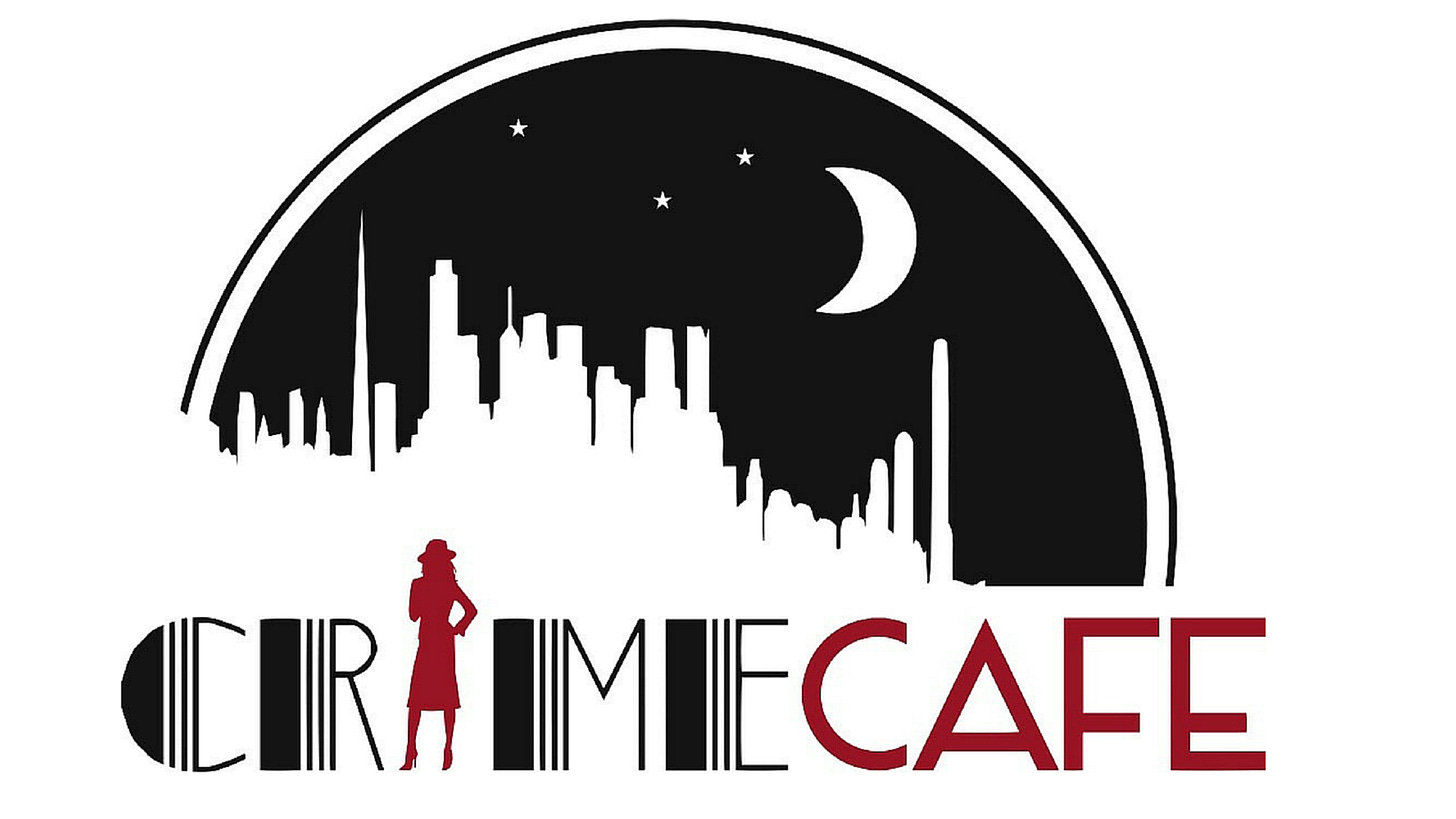
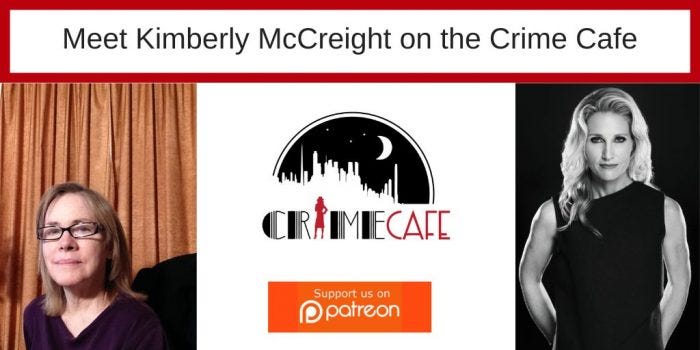

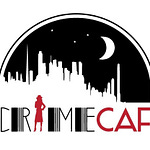
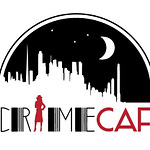
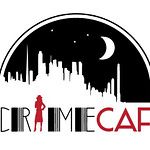
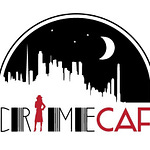

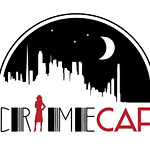


Share this post